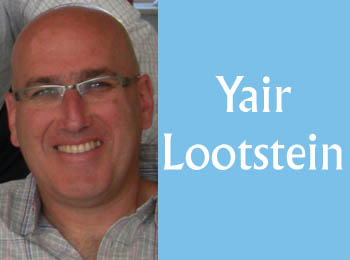I recently spent 10 days in North America and returned home after some remarkable experiences.
I’m president of the largest Reform synagogue in Jerusalem and was asked to join a contingent of Israel Movement of Progressive Judaism (IMPJ) professionals and lay-leaders to the Union of Reform Judaism (URJ) Biennial outside Washington D.C., in mid-December.
I decided to travel privately to Toronto en route to the conference, not having visited in more than a decade. Among olim, I’m considered pretty lucky. My parents and sister also live in Israel, and I feel no urgent need to make annual pilgrimages to the place where I grew up. But it really had been too long, and this was an opportunity to see friends and family.
Preparing for the trip, I put aside time to talk to people, especially older friends and family members. It was time well spent. I spent meaningful hours hearing stories I’d never heard from people dear to my heart, people who’ve gone through much in their lives.
It was also a chance to catch up. I was wonderfully taken care of, with delectable brunches, lunches and munchies. I was amazed at how I comfortable I felt again with persons I see too rarely.
Perhaps most memorably, I spent a magical evening with 15 primary school friends I grew up with. We shared memories and pictures of kids, realizing again how much the years together had shaped us and what a special bond they had created among us.
Flying from Toronto to Washington, I said to myself: “Dayenu.” If the trip had ended there and then, it would have sufficed. I had seen almost nothing of Toronto, but I came away delightfully enriched.
The flight was an appropriate lead-in to the second chapter of the trip – completely different, yet also stirring.
Growing up in Toronto, my parents were members of a wonderful Conservative shul, Beth Tikvah Synagogue. I rarely visited Reform temples, except for friends’ bar and bat mitzvahs, always feeling they were somewhat foreign, with not enough Yiddishkeit.
In Jerusalem, my own family couldn’t find a synagogue that fit our needs. After trying different congregations, we joined Kehillat Kol HaNeshama, our spiritual home and centre of much that goes on in our lives.
My involvement at Kol HaNeshama led to the URJ Biennial invitation, and I was thrilled that I accepted the invitation. It was an eye-opener. Some 6,500 proud Reform Jews representing 900 American congregations with more than 1.5 million members gathered for five days of learning, worship, music, speakers, advocacy, networking and much more.
Most were Americans, but there were folks from other places, too, including a Canadian delegation and smaller ones from the United Kingdom, Germany, Poland, Russia, Ukraine and Israel. This biennial had the largest Israeli presence to date.
At plenary sessions, we heard wonderful keynote speakers, including U.S. President Barack Obama, who noted the URJ’s importance to North America’s Jewish milieu and how significant it (and particularly its Religious Action Committee) was in advancing civil rights in America during the last several decades.
Music could be heard almost round the clock, while smaller gatherings dealt with assorted issues concerning Reform Judaism: how congregations are dealing with the financial crisis, tikkun olam, Jewish education, youth empowerment, camps, the Internet and Israel-related matters, to name but a few.
The transition between outgoing URJ president Rabbi Eric Yoffie, and his successor, Rabbi Rick Jacobs, was central to the entire event. So were daily prayers. And twice – Friday evening and Shabbat morning – 5,000 people worshipped together, mostly in Hebrew. It was overwhelming, as was Rabbi Yoffie’s inspiring farewell sermon describing the movement’s achievements and its future challenges.
Concern and support for Israel and the IMPJ and its pluralistic agenda were abundant – more than I’d expected. Rabbi Jacobs invited a small group of Israeli delegates to hear our vision of the future relationship between the North American and Israeli Reform movements. Rabbi Richard Hirsch, the man most instrumental in forging the special relationship between Israel and the URJ, was honoured with a special award, and ARZA (the Association of Reform Zionists of America) staff and volunteers were highly visible championing the IMPJ. It was tremendous. I was proud to be part of it.
Arriving home, I understood how much I’d learned during this trip about the importance of my own Canadian roots and about the positive, albeit demanding, direction of American Reform Judaism.
